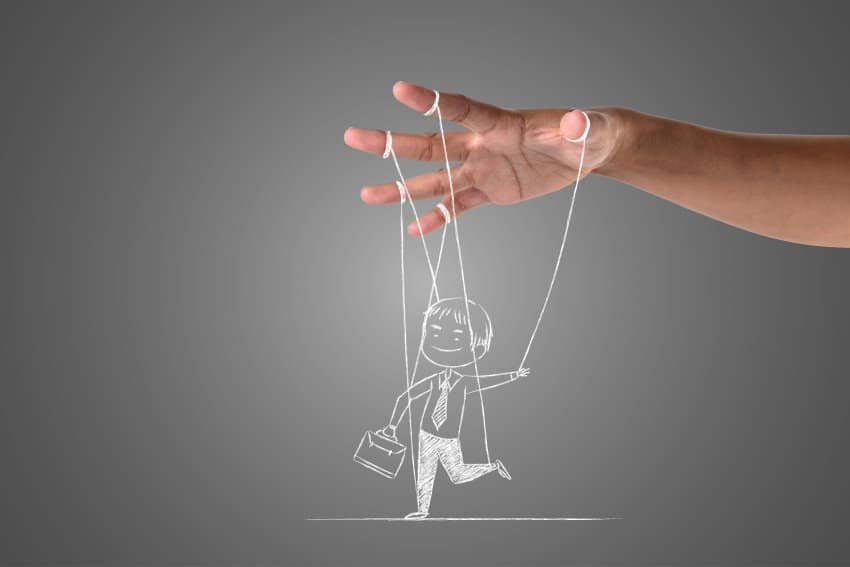11 Ways That Dating A Narcissist Changes You
*We may earn a commission for purchases made using our links. Please see our disclosure to learn more.
When you’re in a relationship with a narcissist, there’s no question that it changes you. The kind of emotional abuse they put you through has several long-lasting effects no matter what happens to the relationship. The narcissist will lie to you, gaslight you, and use other manipulative techniques that can have a detrimental effect on both your physical and mental health.
There are numerous ways a narcissist changes your life forever, and many of these can affect you for the rest of your life. Here are 11 important ways that dating a narcissist can change you:
- Your Self-Esteem Suffers;
- You Become More Anxious;
- You Become Insecure;
- You’re Uncertain of Your Perceptions;
- You Develop Complex PTSD;
- You Lose Trust in Others;
- You Become More Isolated;
- You Feel You Can’t Trust Yourself;
- You Feel Helpless;
- You Have Difficulty Believing Other People;
- You Have Problems Developing New Relationships.
To truly understand how the narcissist can cause such dramatic changes in your life, you need to really understand how this personality disorder affects the behavior of those afflicted. That helps you to better understand their behavior, and that can help you understand why you may be changed forever.
The Roots of Narcissistic Personality Disorder
Narcissistic personality disorder develops in childhood. At the root of this mental condition are childhood experiences that caused the narcissist to believe that they are inept and worthless. This can happen because the narcissist has parents who are themselves narcissists.

Narcissistic parents abuse their children in the same ways that they abuse you; however, their children are unaware they are even being abused. Narcissistic parents often pit their own children against one another using triangulation. They may pick a favorite and then manipulate the other children into trying to get attention from them.
They also constantly criticize their children, something that often does irreparable damage. The children of narcissists can become narcissists themselves when they are led to believe that their true self is hopelessly flawed. Why wouldn’t they believe that given that their parents are telling them exactly that?
Another type of parenting that can cause narcissism is that of overprotective parenting. Though the parents may not be as openly critical of their child, they still send the same message by never letting their children do anything for themselves. In that case, as with the abusive parent, the child still gets the message that they are truly worthless and incapable of doing anything.
In both cases, the children bury what they see as a flawed true self and construct a false self in its place. This false self, however, is unable to do the work of the true self, and that’s a big part of the narcissist’s problem. It can’t internally support their self-esteem nor can it help them self-soothe.
Instead, the narcissist must turn to external sources of validation to feel good about themselves. But to get that, they must manipulate the people in their life, almost constantly. That’s what causes big problems for you.
Stages of a Narcissistic Relationship
The stages of a relationship with a narcissist include the idealization stage, the devaluation stage, and finally, the discard. In the idealization stage, the narcissist will be busy learning everything they can about you.
They seem so interested in everything you care about and everything you want in your life. They also seem to share your interests, and they seem to like the same things. They are endlessly curious about what you like, they want to meet your friends, and they like doing the same things you do.
That all changes, however, when the relationship enters the devaluation stage. At this point, you can’t seem to do anything right. The narcissist has unrealistically high expectations for your behavior, and you can rest assured, you will never live up to what they want. They begin criticizing you all the time.
Finally, after they have gotten all they want from you or they sense you might leave them, they may discard you without notice. Their goal is often to leave you wondering what happened. These stages can be very disruptive to your self-esteem and self-confidence.
How Will a Narcissist Manipulate You?

Narcissists use a variety of insidious techniques to manipulate you. These manipulation tactics are often subtle but do lasting damage. As narcissistic abuse victim Phillip Johnson puts it, “How has dating a Narcissist changed me? How hasn’t it changed me? My life now is a constant search to find the person that I once was after being systematically dismantled.”
Among the most damaging tactics a narcissist will use is lying. They lie easily. You might not be able to believe that someone could lie like that, but the narcissist has had lots of practice. The narcissist is unable to face the truth about themselves, so why would they tell you the truth?
Another technique narcissists like to use is called gaslighting. This is where the narcissist will try to convince you that what you thought happened didn’t actually happen. They will tell you that either you misinterpreted it or it simply didn’t happen at all. They can have you doubting your own memory and perceptions.
A particularly insidious and damaging technique narcissists use is what is called triangulation. This is where they pit family members and friends against one another. They will tell you one thing and your family member — even your own children — something completely different. They will convince you both that they are on your side so they will come out on top.
One final technique is projection. This is where the narcissist accuses you of exactly the thing they are doing. They may be cheating on you, so they accuse you of infidelity. If you question what they are saying, they call you a liar. The technique is designed to both distract you and discourage you from bringing up the subject again.
With these techniques in mind, let’s explore how these tactics can change you.
1. Your Self-Esteem Suffers
A common damaging effect of narcissistic abuse is that your self-esteem suffers. During the devaluation stage of a relationship with a narcissist, you will find that they are constantly criticizing you.
Even if you have a fairly strong sense of yourself, when you’re exposed to that kind of treatment over a long period of time, it takes its toll. This is particularly true when the criticism is coming from someone you thought loved you.
During the initial idealization stage of a relationship with a narcissist, you probably thought you had met the perfect match. They seem so loving and supportive, and they’re so interested in your needs and desires. You probably thought you were so lucky to have found such a person.
But that stage can’t last since the narcissist can’t sustain a focus on someone other than themselves. Eventually, they begin to focus on their own needs and they make unrealistic demands of you. When you can’t meet those demands — and you will never be able to — the narcissist begins to devalue you with an almost constant criticism.
You can’t reconcile this hypercritical person with the loving person you thought you knew and you likely fell hard for. It’s a disappointment that’s hard to accept, and it’s easy to question if they’re right. Your self-esteem takes an enormous hit, both because you’ve been criticized like you have and because you didn’t see this coming.
2. You Become More Anxious

As your relationship with the narcissist moves into the devaluation stage, you find yourself walking on eggshells. When this first starts, you likely make excuses for the narcissist. You might think that they are just going through a hard time or that your relationship is hitting a rough patch.
You double down on your efforts to please them or show your love for them, but you’ll find this still doesn’t work. As you continue to try and please them, you become increasingly anxious. Nothing seems to be working, and they seem to be getting more critical.
Not only does this kind of treatment leave you feeling anxious within this relationship, it can leave you with emotional scars that bleed into other relationships as well. You don’t know what to expect since you thought this person was perfect for you, but they still changed.
3. You Become Insecure
As you suffer from constant criticism and begin trying to make sense out of how you could have misjudged someone so much, you become increasingly insecure. You may have felt you were someone who was good, talented, and kind, but now it seems that you can’t do anything right.
Everything you do to make the narcissist feel secure in your love doesn’t work, and you grow increasingly insecure in yourself and the relationship. Narcissists will also frequently threaten to leave you, and at first, you certainly don’t want this great person you’ve found to leave, so you may change your behavior or plead with them to stay.
Even if you later let them go (which they usually won’t), you now feel very insecure in your ability to have healthy relationships and in your ability to attract partners and maintain a stable relationship.
4. You’re Uncertain of Your Perceptions
The constant gaslighting that a narcissist employs against the people in their life makes their victims feel as though they can’t trust their own perceptions and interpretations. The narcissist will try hard to convince you that what you think happened didn’t happen.
It seems almost surreal because you can’t imagine how anyone would interpret what happened differently. Still, like most healthy people, you question yourself. There’s an adage about how competent people don’t seem confident because they are constantly questioning what they’ve done.
That’s kind of what happens here. You’re a healthier person than the narcissist is, but like most people who are fairly healthy, you may first question if you have interpreted something incorrectly. This is something known as being ego dystonic. Ego dystonic people will look inward first to see if something they did created a problem.
Ego syntonic people never question themselves. They assume the problem is outside of themselves. Guess which one a narcissist is? You guessed it, they’re ego syntonic, and they take advantage of the fact that you are not. That can even have you questioning your own sanity.
5. You Develop Complex PTSD

Complex post traumatic stress disorder, or C-PTSD, is the type of PTSD that develops from chronic, repetitive trauma such as emotional abuse. The narcissist themselves often suffers from this type of PTSD, but they inflict it on you as well.
This results in a trauma that can affect you for the rest of your life, and you often need professional help to process it. You may suffer for years from the anxiety and stress you’re left with after a relationship with a narcissist.
It’s this type of emotional abuse that results in narcissistic victim syndrome where you’re unable to trust yourself and you’re fearful of developing more relationships. You fear you will once again encounter a narcissist. You may also become so insecure in yourself and your perceptions that you simply give up trying to fight the narcissist you’re involved with.
You may become very subservient and let them do whatever they want to you without questioning it. This is the saddest of all fates for the victim of a narcissist.
6. You Lose Trust in Others
A relationship with a narcissist can leave you distrustful of other people in general. After all, your relationship with the narcissist started out great. You may have even thought this was the right person for you, and it’s difficult to understand how you couldn’t see the truth about them.
You learn from this experience how easy it is for people to hide the truth about themselves, and that can leave you questioning whether or not you can trust anyone else. This can have obvious long-term effects on your ability to form healthy relationships in the future.
7. You Become More Isolated

Narcissists will purposely try to isolate you so that you won’t have anyone who can validate your perceptions for you. They don’t want you to have someone to talk to, particularly about them.
They will employ a number of techniques to isolate you from friends and even family members. They essentially don’t want you to have anyone who’s on your side. They want you to have only them to turn to and talk to about your experiences and perceptions.
Aside from their purposeful isolation, you may choose to self-isolate following your experiences with the narcissist. You may feel as though you can’t trust other people and you can’t trust your own perceptions.
8. You Feel You Can’t Trust Yourself
After all the gaslighting, lying, and projection, you can easily come to feel as though you can’t trust yourself. You didn’t see the truth about the narcissist, and then, their criticism has a lasting effect as well.
It’s easy to feel you can’t feel confident in your own ability to judge other people and see when they are using you. It can take a long time for you to recover from the feeling that you are gullible or naive.
9. You Feel Helpless
Aside from the purposeful isolation, constant criticism, and the lying, narcissists will do everything they can to make you dependent on them. They don’t want you to be able to choose to abandon them.
Abandonment is ultimately what the narcissist fears, and if they can get you to be dependent on them so you can’t leave, that’s what they will do. You may allow that, but you may also feel helpless because you just didn’t see them coming.
You may find yourself wondering how you can ever have confidence in your ability to form good relationships. That can make you feel helpless on an emotional level.
10. You Have Difficulty Believing Other People

When you see how easy it is for a narcissist to lie to you, you may have long-term problems believing that other people are telling you the truth. The narcissist lies so easily and without any trace of guilt. In fact, they don’t feel any guilt because they are always easily able to justify their actions.
You may find yourself wondering how many people are lying to you. You may even wonder if anyone tells you the truth. You feel as though you’re honest, but you were fooled so seemingly easily that you just can’t tell if other people are telling you the truth.
11. You Have Problems Developing New Relationships
After all of the ways a narcissist abuses you, it can easily cause problems with developing new relationships. You have just been through a relationship in which you were completely taken in at first. It’s difficult to understand how someone you thought was so wonderful turned out to be so rotten inside.
Your inability to have seen that coming can make you fear the same with any new relationship, whether romantic or not. You will constantly be on guard for the narcissistic behavior you just experienced.
Final Thoughts
A relationship with a narcissist can change your life forever. Narcissistic personality disorder is a destructive kind of mental condition that not only hurts the narcissist, it also hurts everyone around them. If you’re dating a narcissist, you’re particularly close to the destructive behaviors, and the effects of that can leave lasting damage.
It’s important to understand that everything you experienced with the narcissist was the product of their personality disorder and not your character. It’s hard to see that, though, when you’re in the midst of such a damaging relationship. It’s vital to keep in mind that you don’t deserve this kind of treatment, and it’s also important to understand that not everyone is like that.
It’s critical that you also realize if you leave a narcissist, they will likely come back into your life. Even if they leave you, they will probably come back at some point. It’s important for you to read this article about how long it will take them to come back so that you can take the appropriate steps to take care of yourself.
--
If you want more tips for dealing with narcissists, setting boundaries, and managing emotional triggers, make sure you subscribe to my youtube channel




